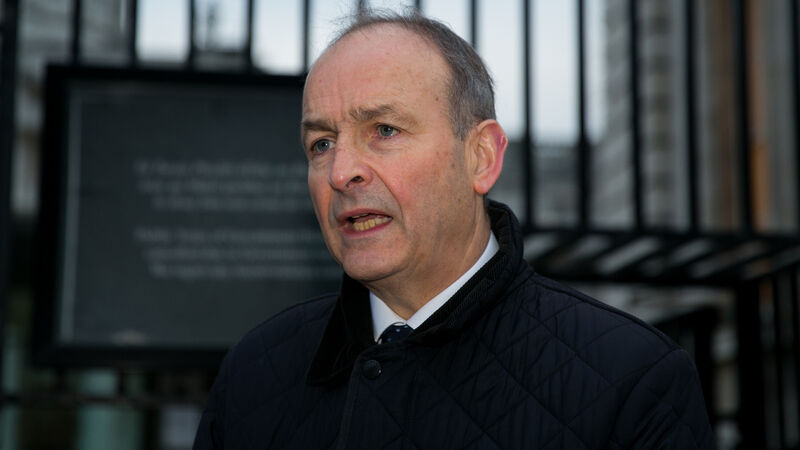Taoiseach says Covid restrictions 'under constant review' but Varadkar insists no change until Jan 30

Micheál Martin said that he did not want to discuss hypotheticals, but said that the restrictions announced last week were constantly reviewed. File photo: Gareth Chaney/Collins
The Taoiseach says there will be a review of public health restrictions if the Omicron variant of Covid-19 is less severe than feared.
Speaking to journalists today, Micheál Martin said that he did not want to discuss hypotheticals, but said that the restrictions announced last week were constantly reviewed.














